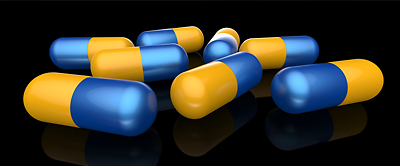As FDA Decision Nears, Cariprazine Collects More Proof of Efficacy
Abstract
This novel antipsychotic may offer the first schizophrenia monotherapy that addresses negative symptoms like lack of desire, energy, and emotion.

The novel antipsychotic cariprazine may provide some of the first real benefits for the negative symptoms of schizophrenia.
While cariprazine awaits new drug approval by the Food and Drug Administration (FDA), promising findings of this novel antipsychotic—intended to treat symptoms of schizophrenia and bipolar disorder—continue to emerge. The most recent results from an international phase 3 trial, published this month in the Journal of Clinical Psychopharmacology, demonstrate the efficacy of cariprazine in alleviating both positive and negative symptoms of schizophrenia.
The latter results would be significant if they hold up, as current antipsychotics are mainly effective at treating the positive symptoms associated with psychosis—the delusions, hallucinations, and disordered speech.
“We are still struggling with the negative symptoms [such as lack of motivation or desire] and cognitive problems that come with schizophrenia,” said John Kane, M.D., a professor of psychiatry, neurology, and neuroscience at the Albert Einstein College of Medicine and chair of psychiatry at Zucker Hillside Hospital in Glen Oaks, N.Y. “And the hope is that cariprazine can address these problems, which are the symptoms that most affect quality of life.”
Even if the negative symptom improvements prove not that substantial, Kane believes cariprazine would be a valued addition to the antipsychotic regimen, as it primarily binds to the dopamine D3 receptor, with lower affinity for the D2 and serotonin receptors targeted by other antipsychotics. “It will be good to bring in novel receptor pharmacology to the field, for that broadens the possibility that we can achieve a response in any given patient,” he told Psychiatric News.
Despite a string of successful clinical studies, cariprazine did suffer a setback in November 2013 when the FDA did not approve the initial New Drug Application (NDA) request made by its manufacturer, Gedeon Richter Plc. Though the FDA acknowledged the effectiveness of cariprazine in treating symptoms of schizophrenia and bipolar mania, the agency requested additional clinical information, including data to better define the optimal dosing regimen.
This current study, which was led by Kane, addresses some of the FDA’s requests. The trial was a three-armed, placebo-controlled study that employed a flexible/fixed dosing regimen. A total of 466 patients with schizophrenia were randomly assigned to receive placebo, cariprazine in a 3-6 mg/day range, or cariprazine in a 6-9 mg/day range (the first trial to explore this higher dose range) for six weeks. Patients in each cariprazine group were started on the lowest dose in their range and had the dose increased if they did not respond after the first two weeks.
At the end of the study, both cariprazine groups had better improvements in the Positive and Negative Syndrome Scale (PANSS) scores compared with the placebo group, with greater improvements seen in the 6-9 mg/day dosage. As with other antipsychotics, cariprazine had a stronger effect on the positive symptoms, but the higher dosage did show statistically significant improvements when considering only PANSS negative symptoms.
The study also revealed that cariprazine’s safety profile was good, and the drug discontinuation rate was about the same as placebo. Restlessness and motor problems were the most common side effects, while metabolic problems—a major concern with current antipsychotics—were generally small, though a subset of patients did show meaningful weight gain (increase of 7 percent or more).
Kane noted that while this trial did not focus on cognitive aspects of schizophrenia, other trials exploring the effectiveness of cariprazine in treating these symptoms are ongoing.
The results of this trial were only recently published, but the data have already been sent to the FDA as part of a revised NDA, which was submitted in December 2014. While the hope was to have a verdict by this time, the FDA did request a three-month extension in June to complete its review, so an approval or denial is expected to be announced sometime in September.
This clinical study was supported by Gedeon Richter and Forest Laboratories LLC (a subsidiary of Actavis Inc.). Kane has consulted with Forest Laboratories and helped guide previous clinical studies of cariprazine prior to leading this current one. ■



